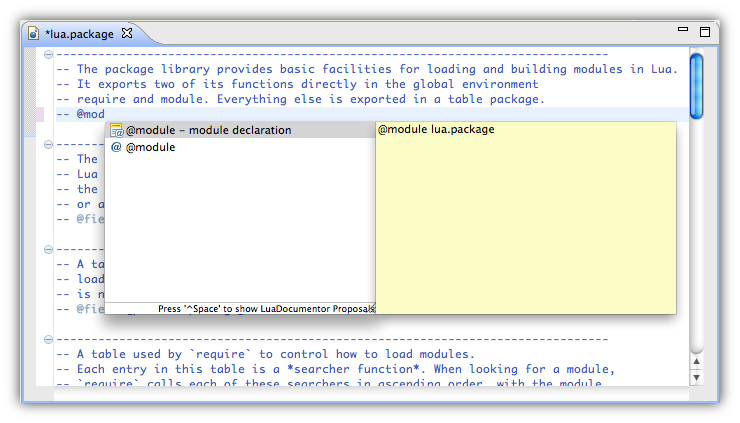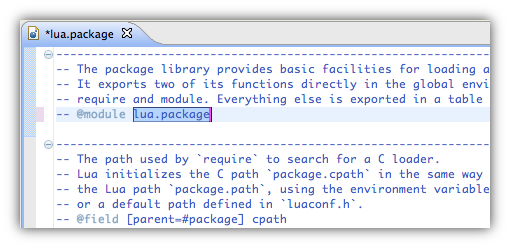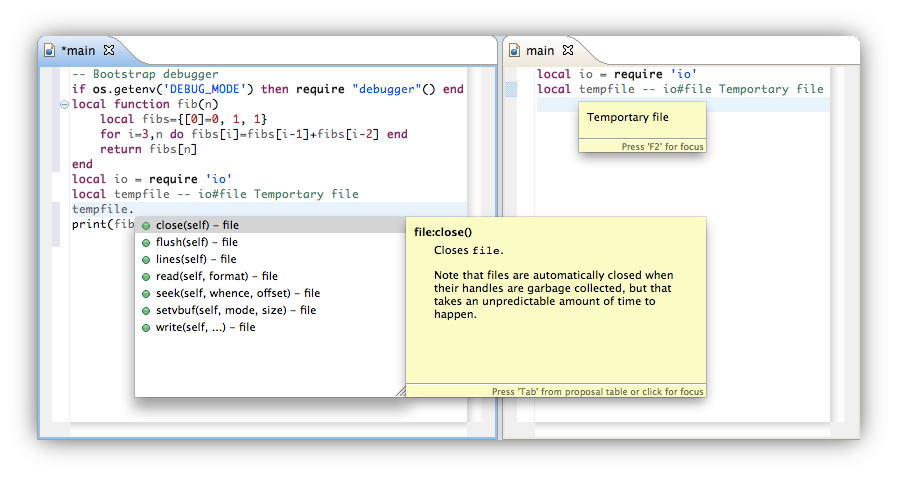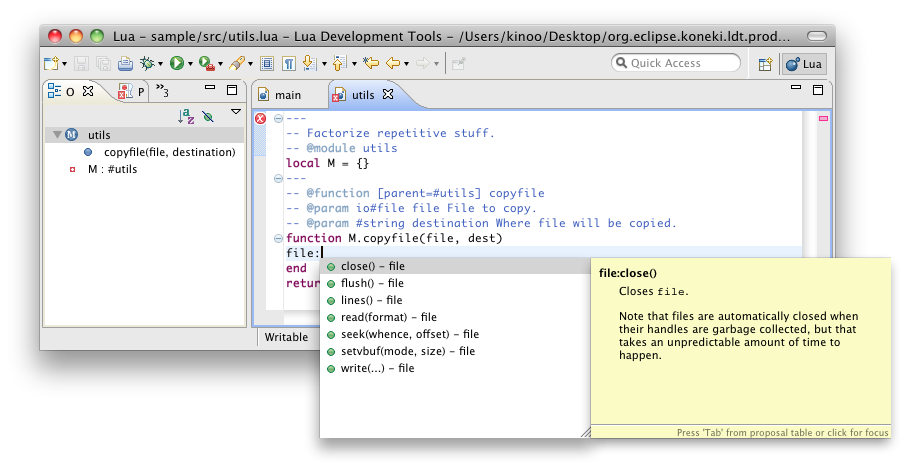Tips and Tricks
Quick Outline
Using CTRL+O (or Cmd+O on MacOSX) you can display a pop-up which contains the outline for the current file. It can be used to go very quickly to a variable or function declaration.
Code documentation assistance
LDT supports code assistance for code documentation. It allows to document Lua source code (and especially Lua modules), faster and more efficiently, as there are code completion templates provided.


Support of LuaJIT debug
LDT debugger is now compatible LuaJIT 2.0.x interpreter. LuaJIT is a Just-In-Time Compiler(JIT) for the Lua programming language.
Note: The debugger needs LuaSocket version 2.1.x to work on top of LuaJIT, see the vm compatibility page.
Explicit Variable Description & Typing
It's now possible to type and set a description for a variable by adding a comment before or after its declaration. Typing a variable allow to have auto-completion on it and explicit your code.

Function Parameters Typing
When function parameters are documented with a type using the Lua Documentation Language, they will benefit full auto-completion in function body.

Spell Checking
Currently, LDT (DLTK) provides spell checking but no spelling engine, it reuses the one from the Java Development Toolkit. So, to enable the spell checking just install JDT.
Debugger version
When starting a debug session, the debugger DBGP client print his version. This version have to be the same as the Lua Developement Tool version. In the case where the versions are differents the behaviour of the debugger can be hazardous. To get the good version of the debugger DBGP client lua file see the user manual at Launching_DBGp_Client section.
